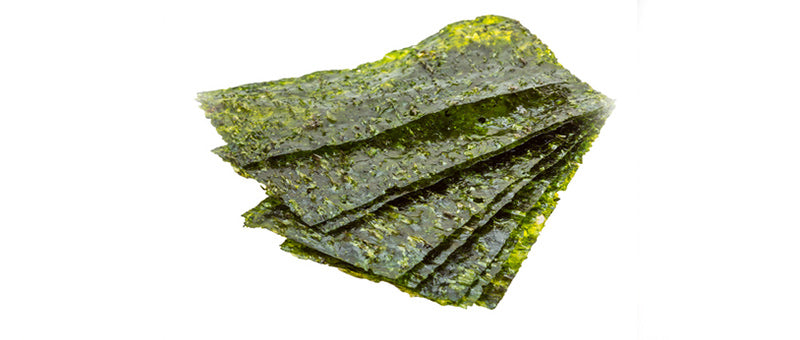
Exploring the Healthiest Japanese Foods: A Culinary Journey to Longevity
Why is the Japanese diet so healthy?
The Japanese have a reputation for their healthy lifestyle and longevity, with some of the world's highest life expectancies. While genetics and lifestyle factors certainly play a significant role in this, their diet also deserves recognition. Japanese cuisine is a treasure trove of wholesome and nutritious foods that have been celebrated not only for their exquisite taste but also for their potential health benefits. In this article, we will take a deep dive into some of the healthiest Japanese foods that contribute to their well-being and longevity.

- Edamame
Edamame, young soybeans, are a popular and nutritious snack in Japan. Packed with protein, fiber, and essential vitamins, they make a satisfying and heart-healthy choice. Edamame also contains antioxidants and isoflavones, which may reduce the risk of heart disease and certain cancers. These little green beans are a versatile addition to salads, stir-fries, or simply enjoyed on their own with a sprinkle of sea salt.

- Sashimi
Sashimi is a Japanese dish consisting of thinly sliced, raw fish or seafood. It's a low-calorie, high-protein option, rich in omega-3 fatty acids, which are known for their heart-protective qualities. The key to sashimi's healthiness lies in its freshness and minimal processing. With the potential to reduce the risk of cardiovascular diseases and promote brain health, sashimi is a delicious choice for seafood lovers.

- Miso Soup
Miso soup is a traditional Japanese dish made from fermented soybean paste, called miso, combined with seaweed, tofu, and various seasonings. This savory broth is not only delicious but also incredibly nutritious. Miso is probiotic, which means it contains beneficial bacteria that promote gut health. It is also a source of essential vitamins, minerals, and antioxidants. Regular consumption of miso soup has been linked to a lower risk of breast cancer and improved overall digestive health.

- Natto
Natto is a Japanese delicacy made from fermented soybeans. It's known for its strong flavor and distinctive sticky texture, but it's also celebrated for its health benefits. Natto is rich in vitamin K2, which is essential for bone and heart health. Additionally, it contains probiotics and enzymes that support digestion and may boost the immune system. While natto might be an acquired taste for some, it is undoubtedly a nutritious addition to the Japanese diet.

- Seaweed
Seaweed, or nori in Japanese, is a staple in Japanese cuisine and an excellent source of vitamins and minerals. It is particularly rich in iodine, which is crucial for thyroid health. Seaweed is also packed with antioxidants, fiber, and healthy fats. It can be found in various forms, including sushi wraps, snacks, and salads. The consumption of seaweed has been linked to lower blood pressure, improved cholesterol levels, and better weight management.

- Tofu
Tofu, a soybean-based product, is a versatile ingredient in Japanese cooking. It is an excellent source of plant-based protein, making it a valuable component for vegetarians and vegans. Tofu is low in calories, cholesterol-free, and contains essential amino acids, iron, and calcium. Regular consumption of tofu is associated with reduced risk of heart disease, lowered blood pressure, and improved bone health.

- Green Tea
Green tea is not only a beverage but also a cultural icon in Japan. It is well-known for its high content of antioxidants, particularly catechins, which have numerous health benefits. Regular consumption of green tea has been linked to a lower risk of various chronic diseases, including cancer, heart disease, and diabetes. It also contains L-theanine, an amino acid that promotes relaxation and mental alertness. Green tea is a healthy, refreshing drink that can be enjoyed hot or cold.

- Soba Noodles
Soba noodles are made from buckwheat flour, providing a healthier alternative to traditional wheat-based pasta. Buckwheat is gluten-free and rich in nutrients, including fiber, vitamins, and minerals. Soba noodles are believed to support heart health, regulate blood sugar levels, and improve digestion. They are often served both hot and cold, making them a versatile and delicious addition to the Japanese diet.

- Japanese Sweet Potatoes
Japanese sweet potatoes, known as satsumaimo, are a beloved side dish in Japan. They are incredibly nutritious, rich in fiber, vitamins, and antioxidants, particularly beta-carotene. These sweet potatoes have a low glycemic index, which means they help stabilize blood sugar levels. They are also linked to improved skin health and may even have anti-inflammatory properties.

- Sushi
Sushi is perhaps one of the most famous Japanese dishes worldwide. It typically consists of vinegared rice, seafood, and vegetables. While some variations, such as tempura rolls, can be less healthy, traditional sushi, like sashimi and nigiri, is a nutritious choice. It's a good source of lean protein, omega-3 fatty acids, and various vitamins and minerals. Sushi is not only a treat for the taste buds but also a heart-healthy option when enjoyed in moderation.
A perfect mix of flavor and healthiness
The Japanese diet is a testament to the power of food as medicine. It is a wonderful blend of flavors and nutrition that supports longevity and overall well-being. From edamame and sashimi to miso soup and natto, each dish offers a unique set of health benefits. Incorporating these foods into your diet can be a delicious way to promote heart health, boost your immune system, and increase your chances of living a longer, healthier life. So, the next time you enjoy a Japanese meal, savor not only the taste but also the potential for a healthier future.

